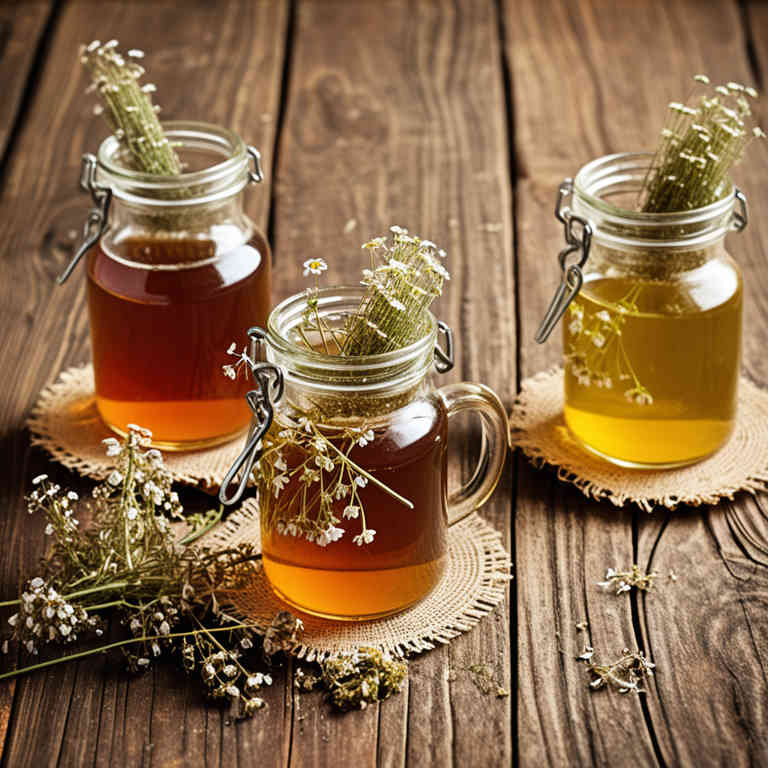Euphrasia officinalis syrup for medicinal use

Euphrasia officinalis syrup is a traditional herbal preparation made from the dried flowers of the greater plantain herb.
It is commonly used in herbalism to support eye health and alleviate symptoms of eye strain, redness, and irritation. The syrup is often prepared with honey or sugar and water, and it is believed to have anti-inflammatory and soothing properties. It is traditionally used to treat conditions such as conjunctivitis and dry eyes.
In some cultures, it is also used to support the immune system and reduce respiratory inflammation.
Uses
Euphrasia officinalis syrup has been used to treat eye conditions and respiratory ailments for centuries.
Historically, it was valued in traditional medicine for its purported ability to alleviate symptoms of eye strain, redness, and irritation, as well as to soothe coughs and sore throats. In herbal traditions, it was often prepared as a syrup to make it more palatable and easier to consume, especially for children or those with sensitive stomachs. Modern herbal practitioners continue to use it for its anti-inflammatory and mild expectorant properties, though scientific evidence supporting its efficacy remains limited.
Despite its long history, it is typically used as a complementary therapy rather than a primary treatment in contemporary medicine.
Benefits
Euphrasia officinalis syrup has health benefits such as reducing eye strain, alleviating symptoms of conjunctivitis, and supporting overall eye health.
It is often used to relieve redness, irritation, and dryness in the eyes, making it a popular remedy for people who spend long hours staring at screens. This herbal preparation may also help with respiratory issues like coughs and sore throats due to its anti-inflammatory properties. It is typically made from the dried herb of the plant Euphrasia officinalis, which has been used in traditional medicine for centuries.
Its soothing effects make it a gentle option for those seeking natural relief from common ailments.
Constituents
Euphrasia officinalis syrup active constituents include flavonoids, tannins, mucilage, and essential oils.
These compounds contribute to its traditional use in supporting eye health and reducing inflammation. Flavonoids act as antioxidants, protecting cells from oxidative stress. Tannins and mucilage have astringent properties that may soothe irritated tissues.
Essential oils provide additional antimicrobial and anti-inflammatory benefits.
Preparation
To make Euphrasia officinalis syrup, start by harvesting fresh or dried Euphrasia officinalis leaves and flowers, then gently steep them in hot water to create a strong herbal infusion.
Strain the liquid to remove plant material, and add a sugar syrup or honey to balance the bitterness and preserve the preparation. Boil the mixture to reduce the liquid and concentrate the active compounds, then allow it to cool before bottling. Store the syrup in a cool, dark place to maintain its potency and shelf life.
This preparation is traditionally used to support eye health and relieve symptoms of eye strain or irritation.
Side Effects
Euphrasia officinalis syrup may lead to mild gastrointestinal discomfort, such as nausea or upset stomach, particularly if taken in high doses.
It is generally considered safe when used as directed, but some individuals may experience allergic reactions, including skin rashes or itching. Prolonged use could potentially cause dependency or reduced effectiveness of the preparation. It is important to consult a healthcare professional before using this syrup, especially for individuals with pre-existing medical conditions.
As with any herbal remedy, it is crucial to follow proper dosage guidelines to minimize the risk of adverse effects.